The Europe Civil Security international forum took place in Warsaw, providing a platform for sharing civilian protection practices in times of war. For two days — on 21-22 May 2025 — nearly a thousand participants from across Europe discussed how the security system is being transformed by the war in Ukraine. The event was organised by the State Emergency Service of Ukraine and the Association of Amalgamated Territorial Communities with the support of the European Commission. The forum focused on Ukraine’s contribution to the formation of a new civilian security system on the continent.
Read more: “Security is a common cause”. Interview with Tetiana Nehaichuk about hromadas
Day one: Ukrainian experience as a driver of change for Europe
The first day of the forum was opened by representatives of European and Ukrainian institutions. All the speeches boiled down to one thing: Ukraine is no longer just learning from Europe, but is offering its own solutions that are becoming relevant for the entire region. Representatives of the European Commission, the Council of Europe, the OSCE and national governments stressed that the adaptation of civil protection systems in Europe is impossible without taking into account Ukraine’s experience.
– Ukraine’s experience is already being integrated into the European security system. Ukrainian developments can be a response to modern threats: natural disasters, armed conflicts, emergencies, – said Maciej Popowski, Director-General of the European Commission’s Directorate-General for Civil Protection and Humanitarian Aid.
The first day’s panel discussions focused on practical cases. One of them was the institute of a community civil protection officer, which was proposed to be introduced in the SES. The officer’s role is to be a trained specialist on the ground, able to make quick decisions in the event of a threat.
According to Roman Prymush, deputy head of the SES, “not every community leader has a clear algorithm of actions when it comes to people’s safety. That is why we need a separate trained person who knows the risks, high-risk objects and the procedure.”
The issue of shelters and rescue operations also remained in the spotlight. It was not only about physical infrastructure, but also about its integration into long-term security strategies. Particular attention was paid to adapting standards to the conditions of military operations, including the creation of volunteer fire brigades and community-based safety centres.
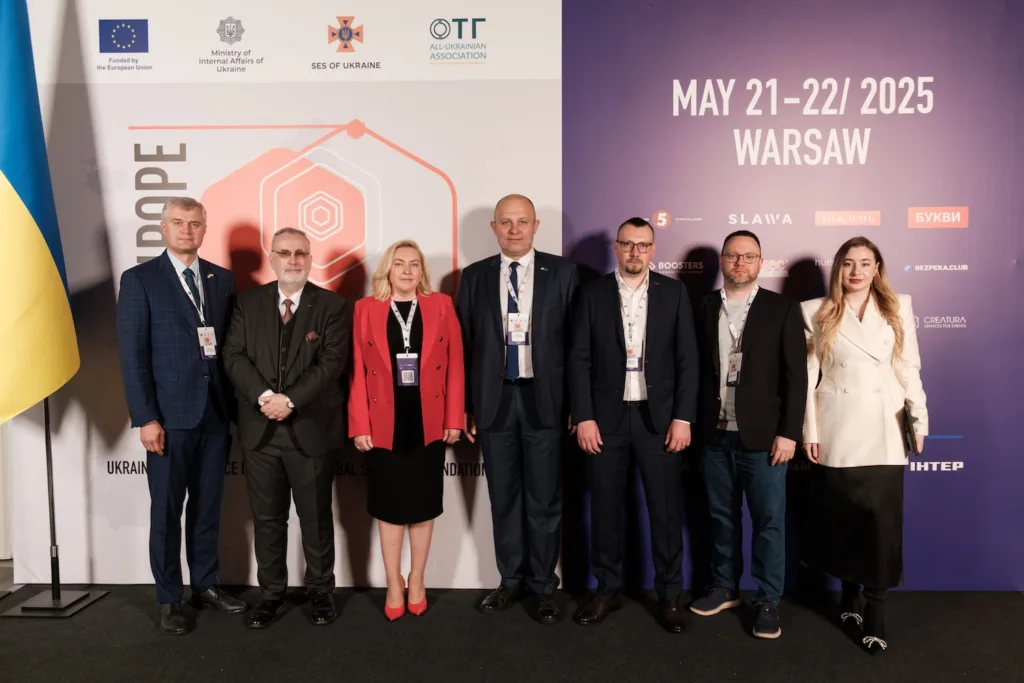

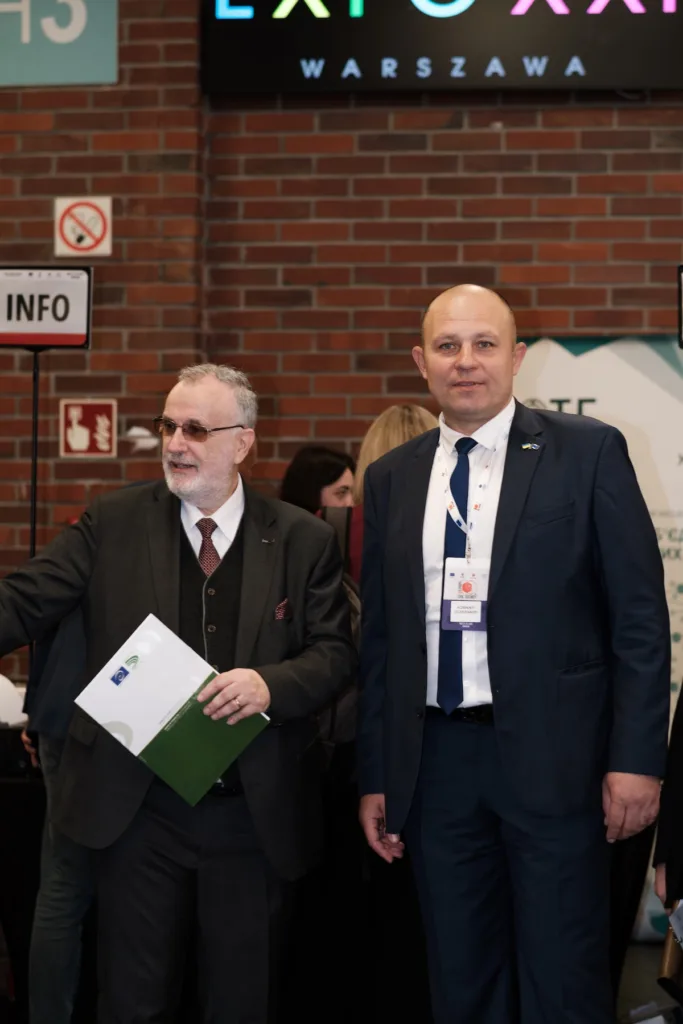
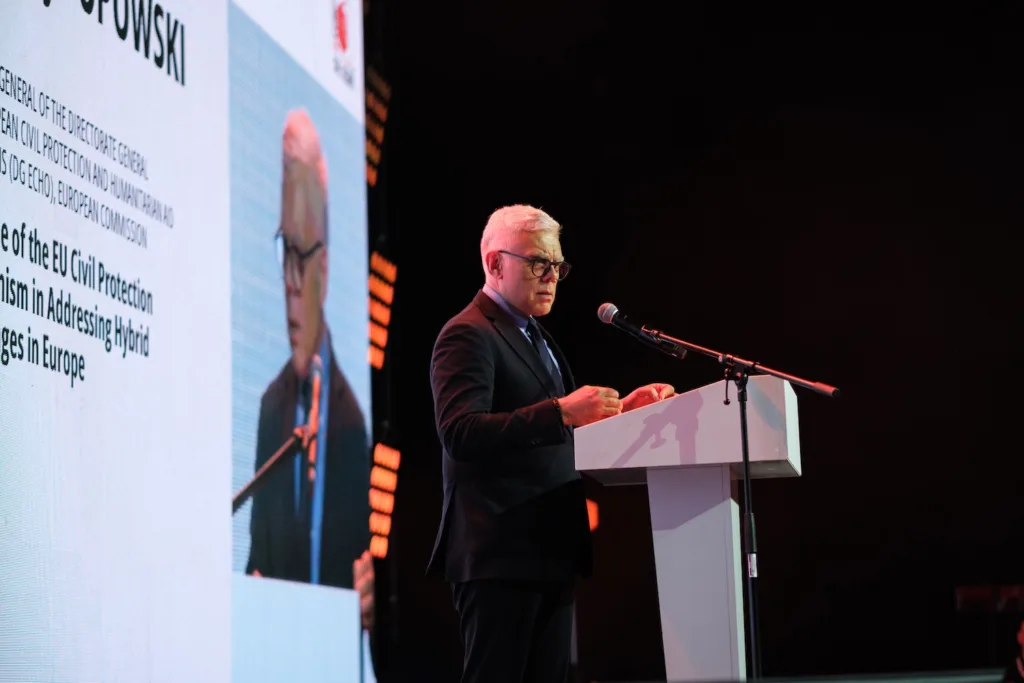
Svitlana Spazheva, Deputy Head of the All-Ukrainian Association of Local Self-Government Bodies “Association of Amalgamated Territorial Communities”, Head of the Pokrovska Territorial Community of the Dnipro Oblast, shared a number of practical security cases that are already being implemented at the local level. Since the beginning of the full-scale invasion, the community has set up a security centre, and a single call centre based on the 112 model is being formed.
Participants emphasised that Ukrainian communities have already proven their ability to be not just the rear, but also centres of strategic decision-making. In this context, security is not only about protection, but also about trust, proactivity, and the ability to join forces.
Tetyana Nehaichuk, Head of the Project Office of the All-Ukrainian Association of Amalgamated Territorial Communities, Director of Boosters Consulting Group, and security project management expert, emphasised the importance of the local level. Communities are the first to face the consequences of threats and are the places where innovative solutions are born.
Read also: The humanitarian situation in Ukraine. Shelling, lack of funding and millions of people in need
Day two: partnerships, communities and sustainable development
The second day of the forum showed how partnerships are becoming the key to effective protection of civilians. In the foreground are communities that make difficult decisions every day to accommodate IDPs, adapt infrastructure, organise evacuations and launch safety education programmes.
Heads of communities from Kharkiv, Zhytomyr, Kyiv, Zakarpattya and other regions shared their experiences. Some of them talked about evacuation centres, others about school shelters, and others about the formation of local fire brigades. The main conclusion was the same: real solutions are born on the ground, not in ministry offices.
– We are not waiting for decisions from above. We have organised a local team that has already extinguished hundreds of fires. This is our contribution to safety, – emphasised Anton Ovsienko, head of the Bilohorodska community.

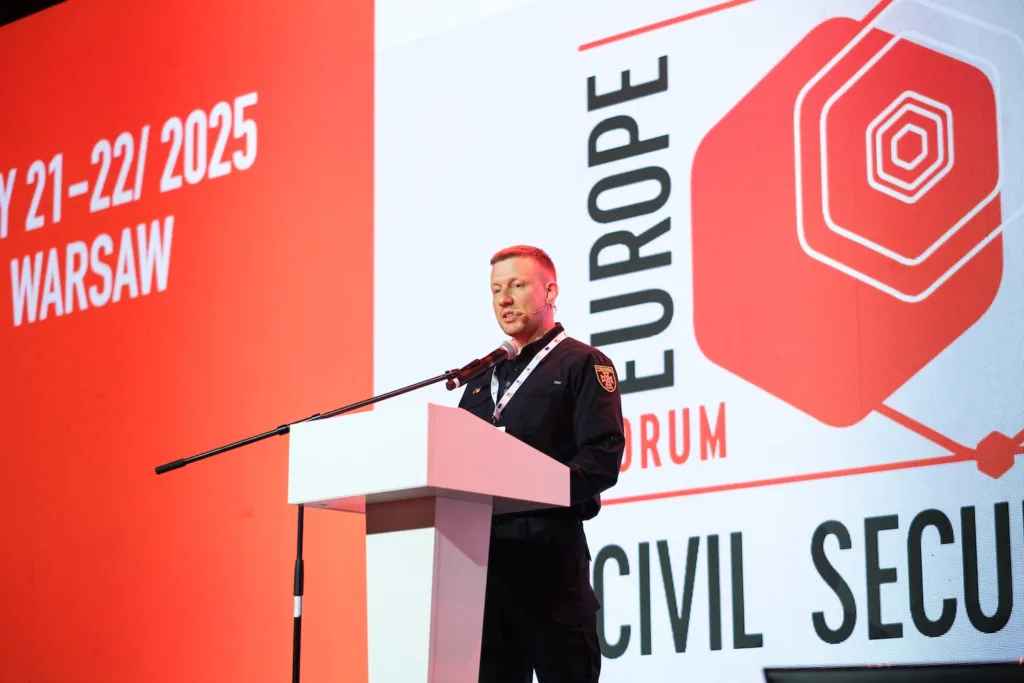
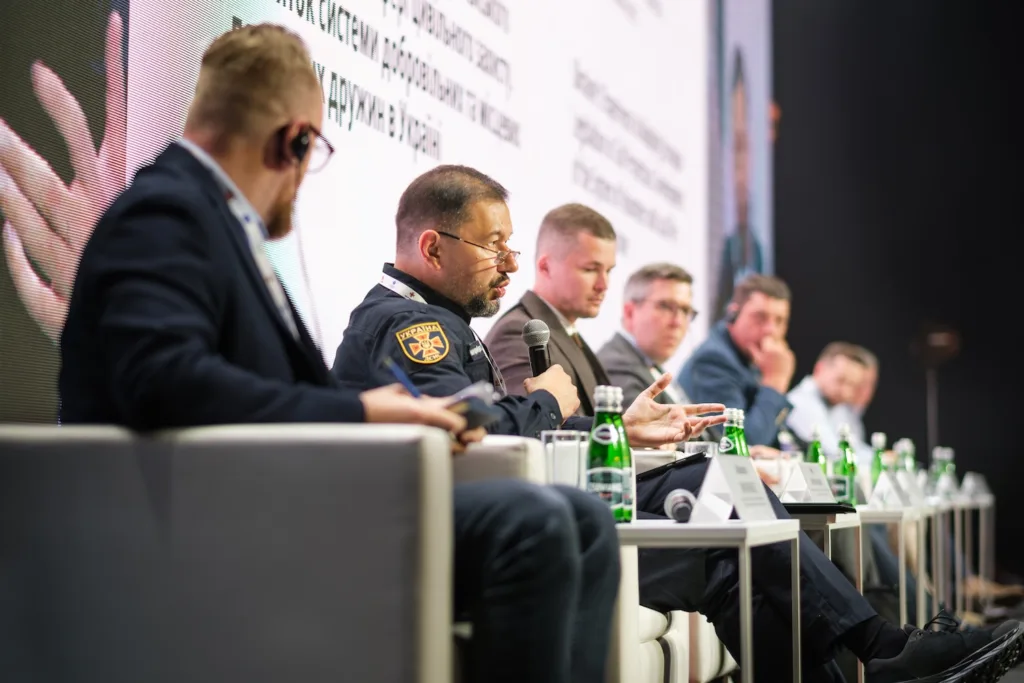
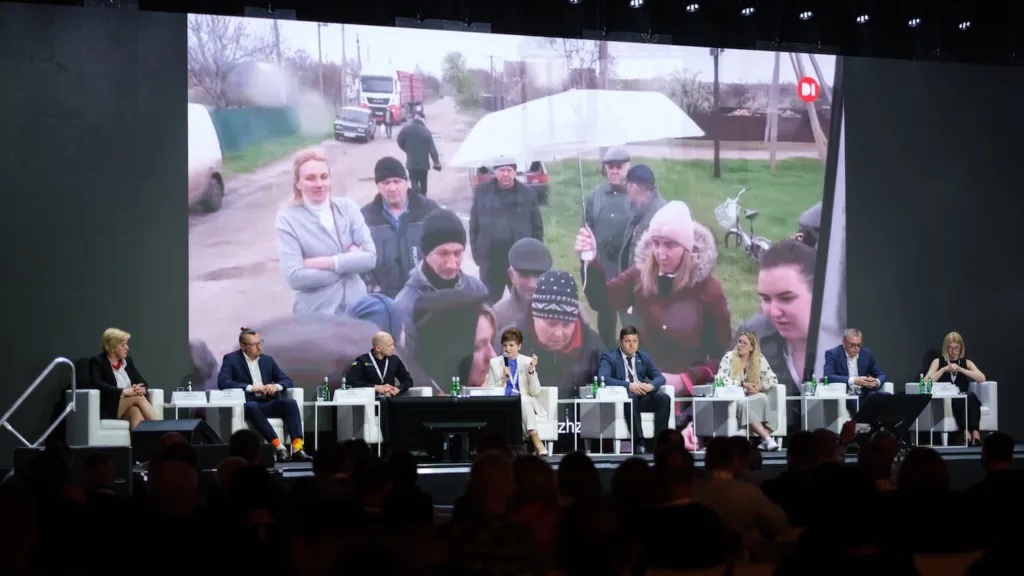
Representatives of charitable foundations and international organisations, including those from Poland, Germany and Sweden, presented support programmes ranging from training for volunteers to strategic security planning.
Solidarity Fund PL expert Agnieszka Piasecka spoke about the Polish experience: “We support volunteer fire brigades as part of the national civil protection system. This proves that local initiatives can be the foundation of pan-European security.”
The second day ended optimistically: partnerships that began with compassion for Ukraine are now transforming into joint projects with a long-term vision. Communities in Ukraine are not just surviving – they are becoming platforms for new European approaches to civilian security.
Read also: Labour imbalance due to the war: Ukrainians are looking for work in the EU, while the labour market at home suffers from a shortage of staff



